Why Is the Romanian CVM Report “Better” than the Bulgarian?
Ralitsa Kovacheva, February 14, 2012
 In the five years since the introduction of the Co-operation and Verification Mechanism with Bulgaria and Romania (CVM) the two countries have established a tacit competition which of them would receive a better assessment by Brussels. Their problems are common, and hence, they have common targets. Except one meaningful exception: the Romanian CVM does not feature the benchmark about organised crime. So far, with only a few exceptions Bulgaria and Romania were moving side by side with a similar tempo and results. The last interim report of the European Commission from 8 February 2012, however, indicates that Bulgaria is lagging behind in the fight against corruption.
In the five years since the introduction of the Co-operation and Verification Mechanism with Bulgaria and Romania (CVM) the two countries have established a tacit competition which of them would receive a better assessment by Brussels. Their problems are common, and hence, they have common targets. Except one meaningful exception: the Romanian CVM does not feature the benchmark about organised crime. So far, with only a few exceptions Bulgaria and Romania were moving side by side with a similar tempo and results. The last interim report of the European Commission from 8 February 2012, however, indicates that Bulgaria is lagging behind in the fight against corruption.
The easiest way to compare the interim reports of Sofia and Bucharest is by comparing the main tasks, identified by the Commission for each one of them until the next report. For Bulgaria they are 6, while Romania has 4. Bulgaria got two recommendations that are not to be found in the report for Romania. The first is for constitutional amendments which are set to guarantee the independence and the accountability of the judiciary. The second is to implement a strategy for the fight against organised crime, focusing on money laundering and improvement of the current practise and results in forfeiting criminal assets.
As already said, the essential difference to be seen in the reports concerns the fight against corruption. While Bulgaria has yet to “conduct and report on professional, non-partisan investigations into allegations of high-level corruption”, Romania has to build “on progress already made” in the field. In addition, Bulgaria is expected to report on internal inspections of public institutions and on the publication of assets of high-level officials.
A very substantial difference  is implied through one single word that is, however, essential to the sensitive issue of the Schengen entry of Sofia and Bucharest. Both countries are expected to take further steps in the prevention and fight of corruption, particularly within local authorities. For Bulgaria, however, the additional word is “at the borders”.
is implied through one single word that is, however, essential to the sensitive issue of the Schengen entry of Sofia and Bucharest. Both countries are expected to take further steps in the prevention and fight of corruption, particularly within local authorities. For Bulgaria, however, the additional word is “at the borders”.
With regard to the judiciary Bulgaria has to ensure a more transparent and efficient judicial process by adopting and implementing a new judicial system act and the new civil procedure code as well as to continue the reform in the judiciary. Romania has to achieve the same goal notably by enhancing the capacity and accountability of the Superior Council of Magistracy.
As a matter of fact, the judiciary issues are in general the same in both countries. In Romania, too, the public concern is mentioned about “the ability of the leadership of the judiciary to adequately respond to problems concerning integrity and accountability” within the system. Although Bucharest has adopted legislation seeking to strengthen the disciplinary responsibility of the judiciary some recent criminal investigations involving senior magistrates were initiated, but were subsequently suspended, which according to the Commission “revealed clear shortcomings in the ability of the judicial leadership to take action when faced with serious risks to the reputation of the judiciary”. There is also a common problem with the persisting imbalances in the workload between different courts and prosecution offices.
With regard to the fight against corruption, however,
the parallel speaks volumes. Romania has adopted measures toward prioritisation of cases, closer to statute-barred periods, which resulted in an increased number of verdicts. In 2011 15 cases were solved in first instance, compared to two cases in 2010. The High Court issued final decisions on nine high-level corruption cases. The National Anti-Corruption Directorate (DNA) has increased its effectiveness which is proved by the increased number of final verdicts on its investigations that involve a “significant number of senior politicians and officials”.
In Bulgaria, since the last Commission report (July 2011) only one final sentence and two non-final sentences were pronounced in high-level corruption cases against three Members of Parliament. An acquittal in second instance was rendered in a case against a former minister. Six non-final convictions were delivered against sitting and former mayors, four with suspended sentences.
In Romania since last July there have been 5 convictions in first instance against 13 defendants in public procurement cases. Regarding offences committed against the financial interests of the European Union, there have been 5 final convictions and 4 non final convictions.
Since the Commission's last report, Romania has made legal amendments and taken administrative measures to strengthen the protection against irregularities and conflict of interest in the management of public funds. Measures include developing standardised tender documentation and strengthening the capacity of the National Authority for Regulating and Monitoring Public Procurement (ANRMAP). Taking into account the importance of public procurement in the Romanian economy, the Commission recommends a special effort to ensure that cases are taken forward efficiently and expeditiously.
For Bulgaria, in contrast, the Commission has concluded that investigations of alleged fraud of EU funds were not pursued by the prosecution, "though investigations into related cases based on the same facts continue in another Member State”. There has been no follow-up by the prosecution in a number of files concerning serious irregularities in the management of EU funds which were forwarded by OLAF in the last two years. “In all cases related to fraud of EU funds brought to court in 2011, criminal responsibility was replaced by administrative fines.” An important case of fraud of EU funds has been delayed in appeal in court for over 18 months.
While Bulgaria has yet to pay attention to the cases of potentially unexplained assets, the Romanian National Integrity Agency with the melodious abbreviation ANI has since 2010 identified 18 cases amounting to a total of EUR 6 million, 23 cases of administrative conflict of interest and 118 cases of incompatibilities. As a result one holder of public office was dismissed, sanctions were applied in two other cases and six other holders of public office resigned.
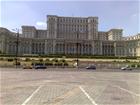 The report notes that the the judicial and administrative follow-up to ANI cases is not sufficiently fast and effective. The exclusion of a politician from his party upon the start of a corruption investigation has been recognised as a positive example. At the same time, six other members of Parliament with convictions for corruption remain as sitting members of Parliament.
The report notes that the the judicial and administrative follow-up to ANI cases is not sufficiently fast and effective. The exclusion of a politician from his party upon the start of a corruption investigation has been recognised as a positive example. At the same time, six other members of Parliament with convictions for corruption remain as sitting members of Parliament.
Ironically, the government of Romanian PM Emil Boc fell from power just two days before the presentation of the Commission report. Obviously, the political will for fighting corruption has been insufficient to save the government from peoples’ anger against the budget cuts. The report’s signal is, however, clear enough for everyone who are on guard concerning the Schengen accession of Bulgaria and Romania. In spite of the official interpretation that Schengen and the CVM are not linked, the link becomes ever more visible. Not only because of the explicit mentioning of the fight against corruption at the borders as a priority task for Bulgaria.
The Dutch immigration and asylum minister Gerd Leers offered the best wording: we do not wish to decide now and regret later. Because in an environment of increasing mistrust within the EU that was seriously stimulated by the debt crisis and the increased immigration pressure, one cannot ignore the doubts that Bulgaria may turn out to be to Schengen what Greece has been to the Euro.
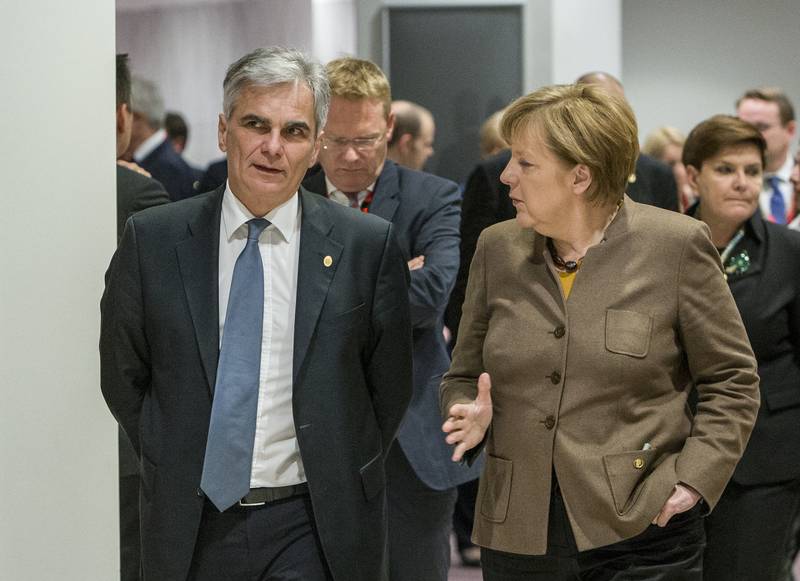 Werner Faymann, Angela Merkel | © Council of the EU
Werner Faymann, Angela Merkel | © Council of the EU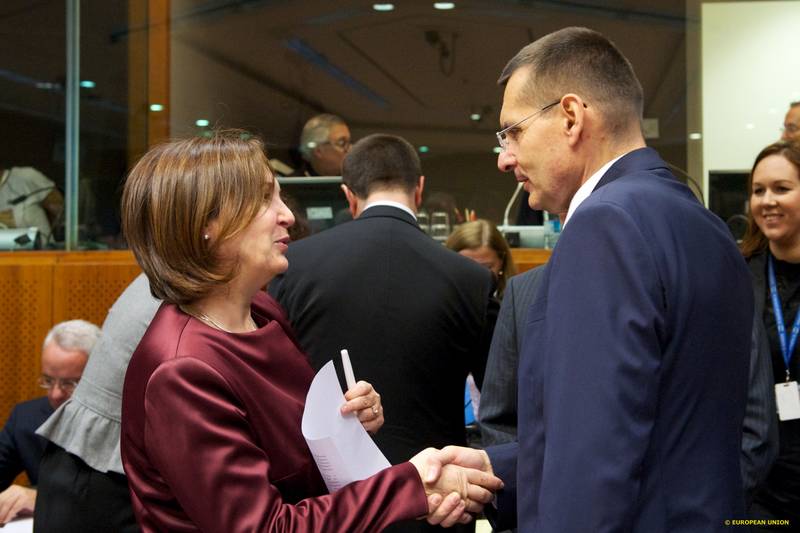 Rumyana Bachvarova, Petre Toba | © Council of the EU
Rumyana Bachvarova, Petre Toba | © Council of the EU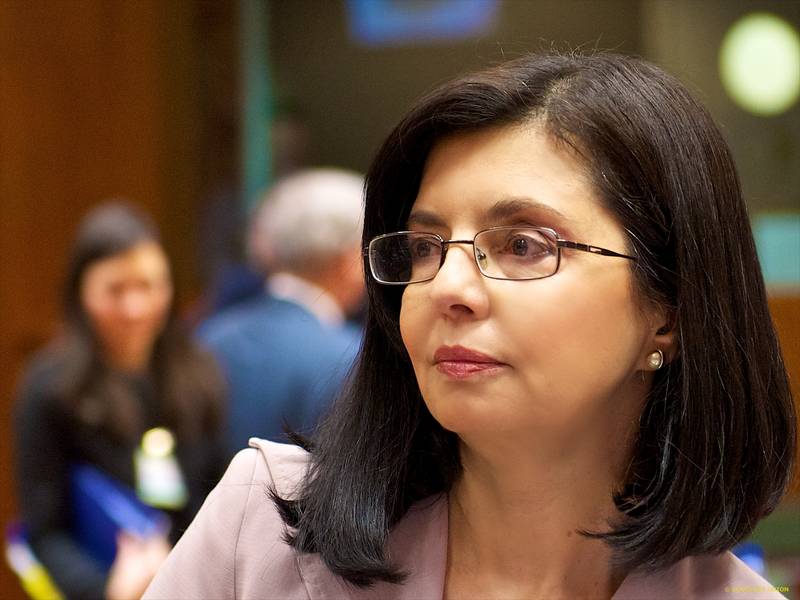 Meglena Kuneva | © Council of the EU
Meglena Kuneva | © Council of the EU Entrance to the Berlaymont building | © EC - Audiovisual Service
Entrance to the Berlaymont building | © EC - Audiovisual Service | © European Union 2020, EC - Audiovisual Service
| © European Union 2020, EC - Audiovisual Service Commission President Ursula von der Leyen | © European Union 2019 - Source: EP
Commission President Ursula von der Leyen | © European Union 2019 - Source: EP | © European Union
| © European Union | © euinside
| © euinside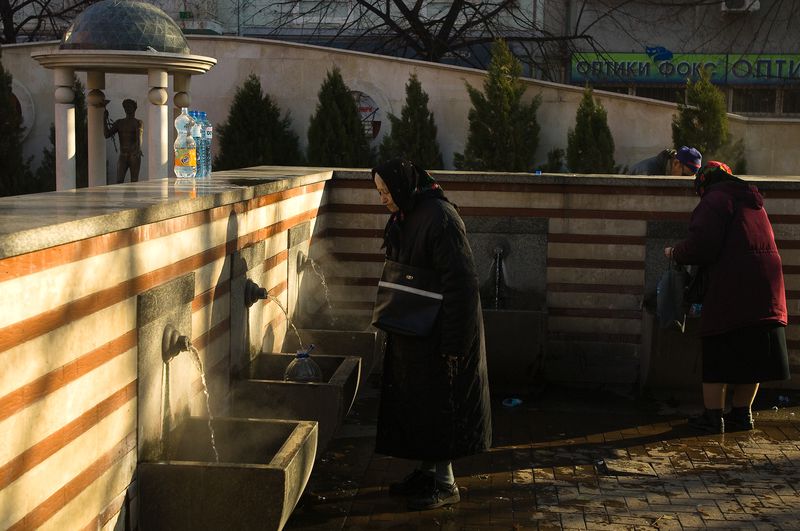 | © EU
| © EU